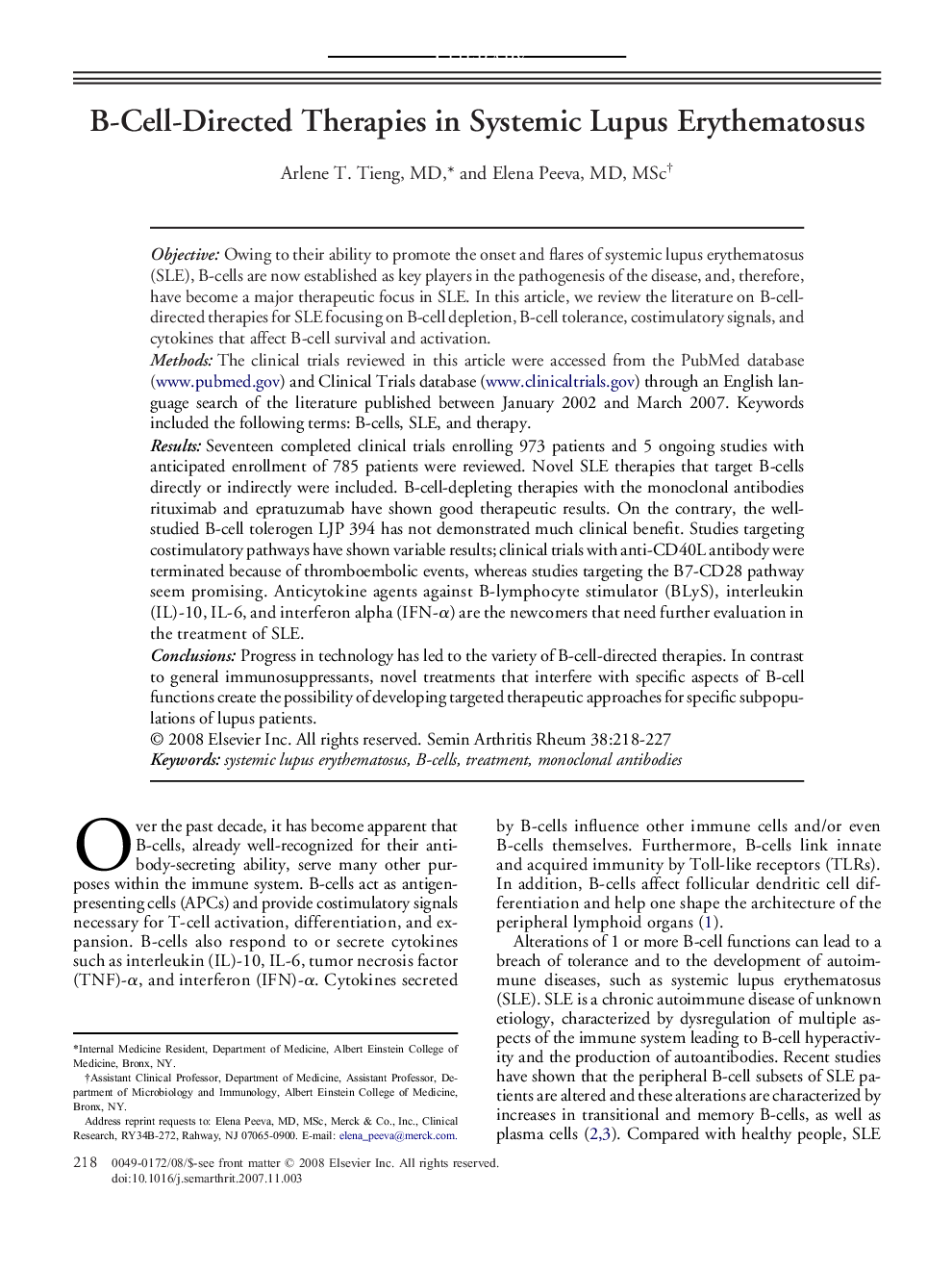| Article ID | Journal | Published Year | Pages | File Type |
|---|---|---|---|---|
| 2771750 | Seminars in Arthritis and Rheumatism | 2008 | 10 Pages |
ObjectiveOwing to their ability to promote the onset and flares of systemic lupus erythematosus (SLE), B-cells are now established as key players in the pathogenesis of the disease, and, therefore, have become a major therapeutic focus in SLE. In this article, we review the literature on B-cell-directed therapies for SLE focusing on B-cell depletion, B-cell tolerance, costimulatory signals, and cytokines that affect B-cell survival and activation.MethodsThe clinical trials reviewed in this article were accessed from the PubMed database (www.pubmed.gov) and Clinical Trials database (www.clinicaltrials.gov) through an English language search of the literature published between January 2002 and March 2007. Keywords included the following terms: B-cells, SLE, and therapy.ResultsSeventeen completed clinical trials enrolling 973 patients and 5 ongoing studies with anticipated enrollment of 785 patients were reviewed. Novel SLE therapies that target B-cells directly or indirectly were included. B-cell-depleting therapies with the monoclonal antibodies rituximab and epratuzumab have shown good therapeutic results. On the contrary, the well-studied B-cell tolerogen LJP 394 has not demonstrated much clinical benefit. Studies targeting costimulatory pathways have shown variable results; clinical trials with anti-CD40L antibody were terminated because of thromboembolic events, whereas studies targeting the B7-CD28 pathway seem promising. Anticytokine agents against B-lymphocyte stimulator (BLyS), interleukin (IL)-10, IL-6, and interferon alpha (IFN-α) are the newcomers that need further evaluation in the treatment of SLE.ConclusionsProgress in technology has led to the variety of B-cell-directed therapies. In contrast to general immunosuppressants, novel treatments that interfere with specific aspects of B-cell functions create the possibility of developing targeted therapeutic approaches for specific subpopulations of lupus patients.
